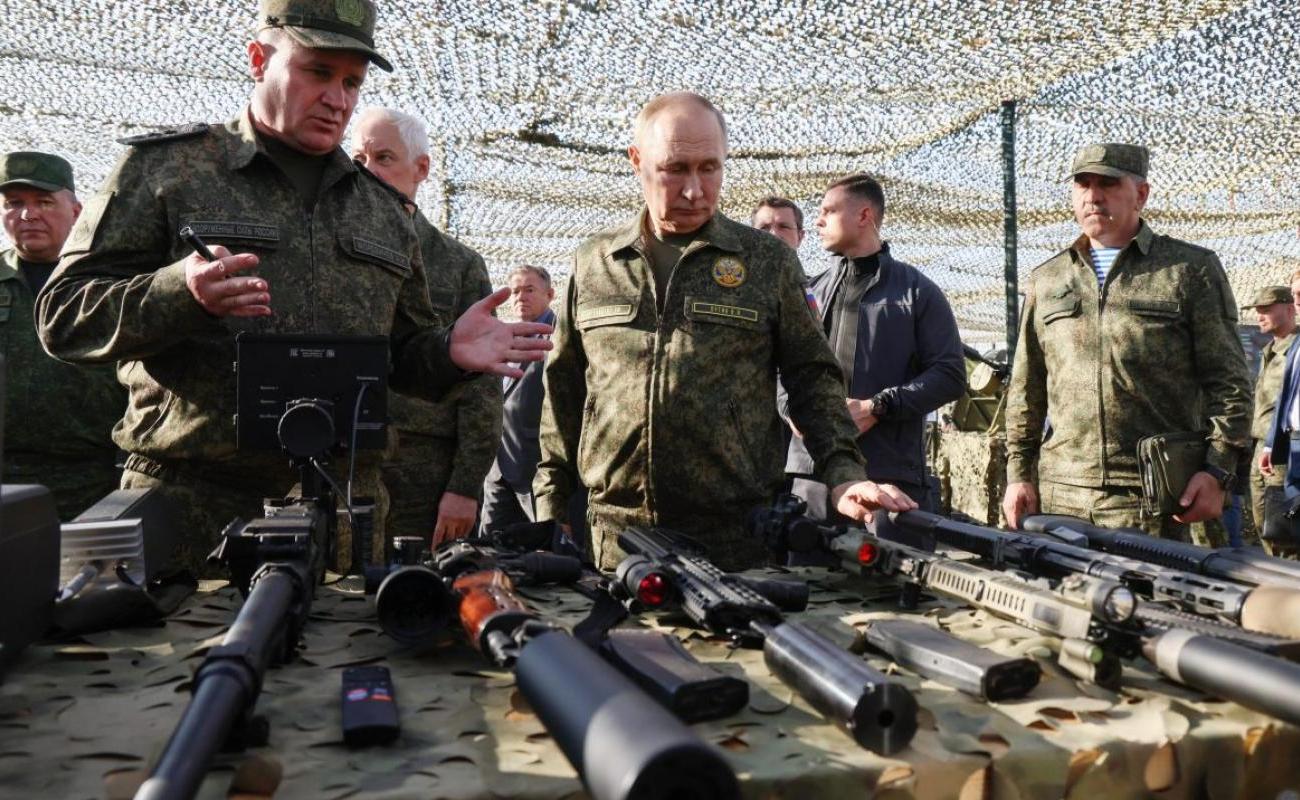Russian arms fueling Italian mafia: a growing security threat
The stockpiling of Kalashnikovs without serial numbers as strategic reserves poses a security challenge for the EU and NATO

Russian state-owned arms factories are increasingly supplying unmarked modern weapons to Italy’s notorious mafia groups, including the Calabrian ‘Ndrangheta, the Neapolitan Camorra, and the Sicilian Cosa Nostra, EUalive’s partner Siol.net writes, quoting Italian investigative portal Linkiesta.
These weapons, including rifles without serial numbes and advanced ammunition, are not only being resold on the black market but are also being stockpiled as strategic reserves, posing a security challenge for the European Union and NATO.
Modern weapons from Russian factories
The weapons in question, such as Kalashnikov rifles manufactured in the last decade at facilities like the Tula arms factory, 200 kilometers south of Moscow, lack serial numbers, making them untraceable.
According to Linkiesta, this suggests possible complicity or tacit approval from Russian state authorities. An unnamed source described Italy as a “weapons warehouse,” with mafia groups amassing arsenals of cutting-edge firearms, including assault and sniper rifles produced between 2010 and 2020.
Europol’s 2023 analysis supports these claims, pointing to “para-state complicity” in the proliferation of unmarked weapons, which could indicate a deliberate effort to destabilize European security.
The absence of serial numbers implies that these weapons are leaving Russian factories with government oversight, a practice that could only occur with high-level authorization.
Smuggling routes: Sicily and Friuli
Italian authorities have identified two primary smuggling routes for these weapons. In Sicily, shipments arrive at ports like Syracuse, Gioia Tauro, Augusta, and Pozzallo, often concealed in barrels of oil or lubricant to evade detection and prevent oxidation. In March 2022, shortly after Russia’s invasion of Ukraine, Sicilian authorities in Catania seized a cache of modern AK-47 rifles, confirming that these were not relics from old Soviet stockpiles but newly manufactured arms.
The second route runs through Italy’s northeastern border in Friuli Venezia Giulia, particularly near Gorizia and Trieste. Smugglers use double-bottomed vehicles to transport small batches of weapons, often ex-Yugoslav or Soviet-era arms, though increasingly supplemented by modern Russian-made firearms. A the Italian interuniversity research centre for crime and innovation “Transcrime” report highlights this border as a key entry point for organized crime groups.
The United Nations Office on Drugs and Crime (UNODC) , in its report on small arms trafficking, issued a warning: “The availability of military stockpiles in the Ukrainian theater poses a concrete risk of diversion to European criminal markets, with particular exposure to Southern European countries.”
Putin’s shadow fleet and geopolitical risks
Russia’s so-called “shadow fleet” – cargo ships operating under flags of convenience to bypass sanctions on oil exports, may also be facilitating arms trafficking.
Estonian intelligence reports suggest that shipments officially destined for third countries are partially offloaded at secondary Mediterranean ports, including those in Sicily. These vessels, often carrying oil or fuel, provide a cover for smuggling weapons, which are then distributed to mafia networks.
The stockpiling of these weapons raises concerns beyond organized crime. Linkiesta suggests that some arms may be reserved for purposes that extend into geopolitical dimensions, potentially serving as tools for destabilization in Europe.
If Russian state factories are indeed supplying untraceable weapons, this poses a direct security challenge to the EU and NATO, as it could enable hybrid warfare tactics or support illicit activities on a broader scale.
A call for vigilance
The influx of modern, unmarked Russian weapons into Italy underscores the need for heightened law enforcement efforts and international cooperation.
Italian authorities continue to intercept shipments, but the scale and sophistication of the smuggling operations suggest a well-coordinated network with potential state backing.
As mafia groups bolster their arsenals, the risks to public safety and regional stability grow, demanding urgent action to disrupt these illicit supply chains.
The original article in Slovenian can be found here.
